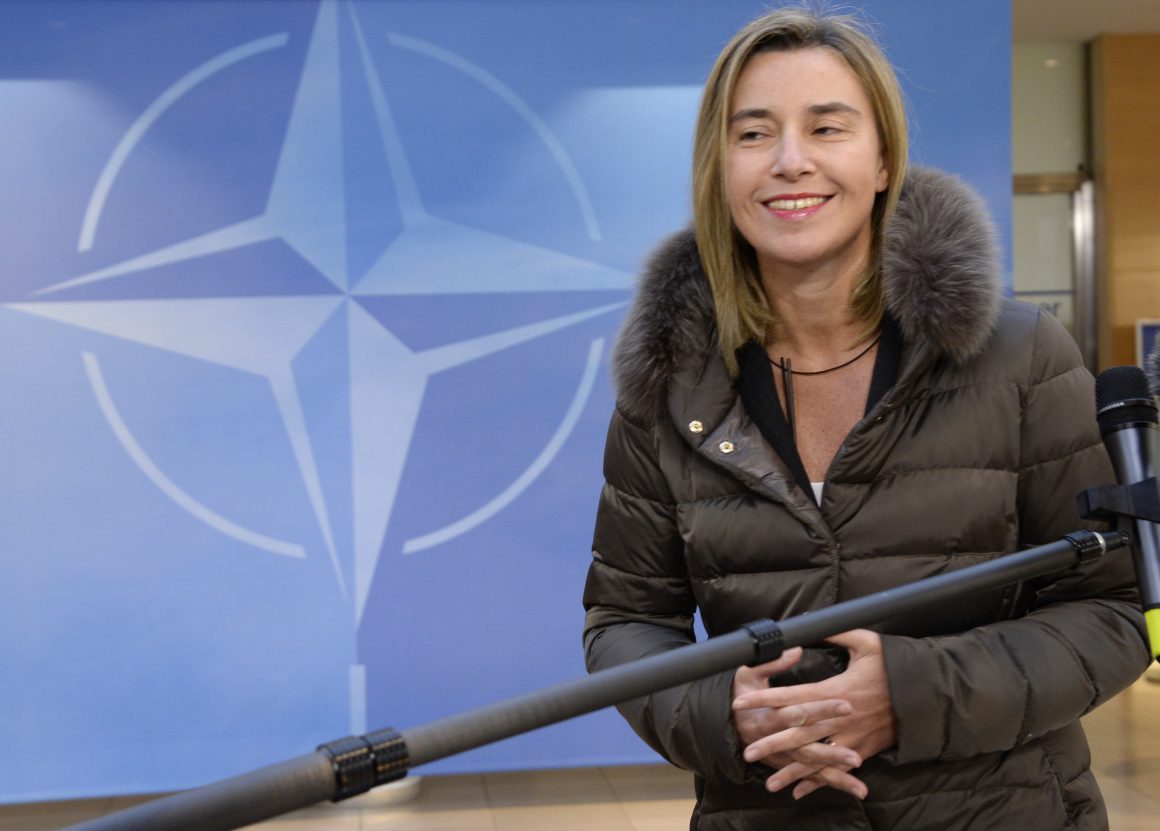The European Union needs its own army to help address the problem that it is not “taken entirely seriously” as an international force, the president of the European Commission has said. Jean-Claude Juncker said such a move would help the EU to persuade Russia that it was serious about defending its values in the face of the threat posed by Moscow (see The Guardian).
This is a topic that European bloggers have been discussing for many years now. It is very sad that we needed Russian aggression to openly discuss it. And even more peculiar that a top EU official hasn’t been calling for such a development sooner. Europe can never have an independent foreign policy, if it relies on others for its defence. Right now it is dependent on the USA through NATO for it, but that permanently ties Europe to the American foreign policy and interests.
Not that this is necessarily a bad thing. Europe and America should stay close partners. Yet how can Europe reassert itself as a global player, if it does not have its own military? Individual cuntries spend a great amount of money for their defence. Yet that expenditure could be lowered on the national level, if member states allowed the EU to offer support through an additional military force.
The idea is not to merge all national armies or replace them by a pan-European one, rather to create a force that will complement and assist them in case of emergency. Many will argue that such a move would be costly and unnecessary, as Europe is not often faced with emergency situations. However, while the expenditure will be higher at the European level, individual member states will benefit in the long term. There will simply be a lesser need for excessive military expenditure, since in case of emergency the whole continent will offer support and get involved.
Europe’s security, just like its economy, should be integrated for greater efficiency and impact. United, Europe’s defence mechanism could deter any potential outside threat. Unity brings strength at every level. Can any future aggressor have any hope of winning a conflict, while having to face all EU states together? The creation of a small but highly equipped and trained EU military force, could also be used while dealing with natural disasters, illegal immigration, or human and drug trafficking. Its use won’t be limited to the case of war or invasion.
This European army could be formed by volunteering troops and equipment from all EU member states. It would be the quick emergency response to any potential threat, while member states could offer further support to each other, if the situation got serious.
This development would glue European states even more firmly together. Strictly an economic or political integration is not sufficient for the creation of a new global power, which our continent aspires to become. It could also send a signal to the rest of the world, that Europe has one united voice in global affairs. Especially in situations that some Eastern European nations are faced with, like an increasingly aggressive Russia, it could be crucial to send a message of unity and strength. In other words, more European solidarity and support for one another at all levels, should be our answer to any potential threat.
Besides, each NATO member contributes to the organization’s budget, so why not use this money to support our own continental army. NATO will remain, as an alliance between a united European army and a North American one, but on more equal terms. Right now the USA bears the largest part of NATO’s financial burden and Europe often has to follow American foreign policy in return. By forming an EU military force, there can be a more balanced relationship between the two old allies. In the past NATO was necessary to protect Europe from Russian aggression. Our continent was a divided one, each side being hostile to the other. Today Europe is uniting again, thus it needs an updated defence policy.
In addition, this European army project could lead to job creation. EU citizens should be eligible to enrol either as professional soldiers, or as members of staff in other fields to fill vacancies across the continent. In cooperation with other EU agencies like FRONTEX, young Europeans could work as patrol officers anywhere in Europe’s borders, for example.
The European Parliament should be given a large say over the European army’s command and the new defence policy’s budget, in order to make it more legitimately European and not susceptible to any national government’s influence. If certain EU members still want to opt out, they should be able to do so if their public opinion is against it. But they should not block this defence mechanism’s creation, if other states wish to go ahead with it.
Finally this new army could be allowed to participate in peace keeping operations around the globe. We already have created several peace keeping forces over the years, to deal with humanitarian crises in regions in conflict. Why can’t we have a permanent one?
Hopefully Mr. Juncker’s call will find strong support from the majority of EU members. We should not wait for a crisis to come to our door to try to tackle such important issues under duress. Now is the time to lay the foundations for the future continent that we would like our children to live in.



